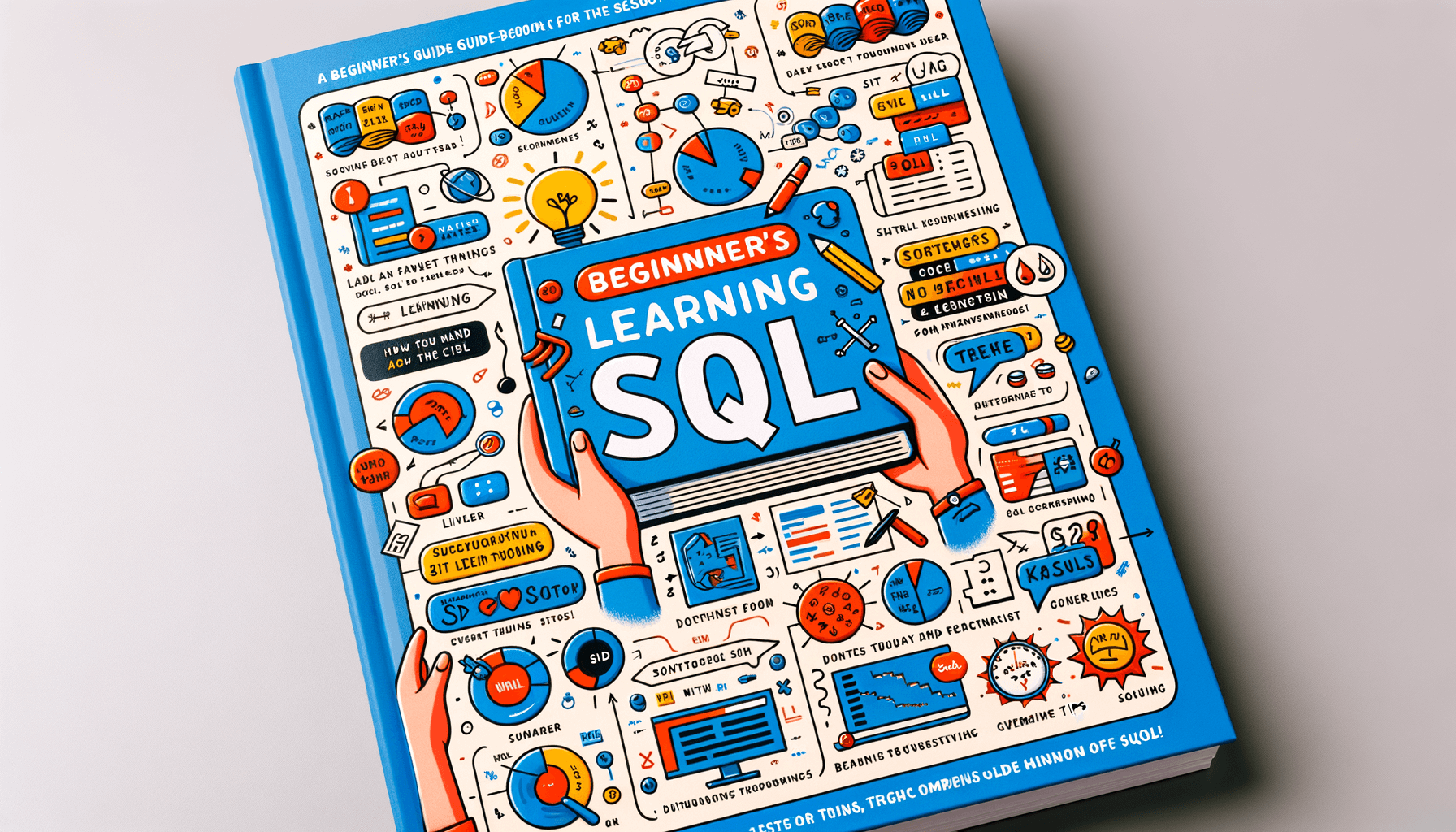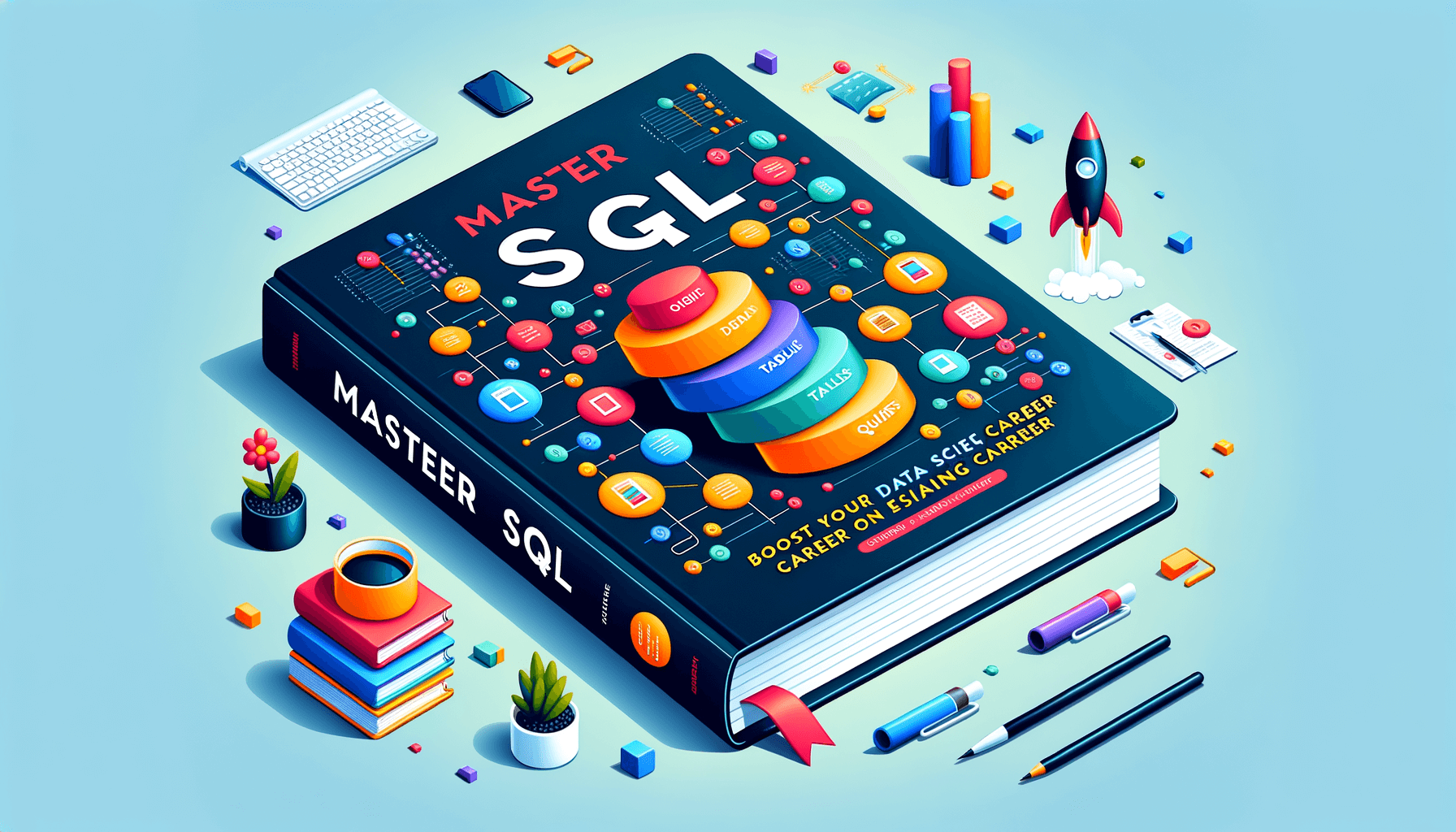A big variety of articles and resources

How Long Does It Take to Learn SQL?
 Sia Author and Instructor
Learn SQL
Sia Author and Instructor
Learn SQL
9 minute read
Factors Influencing the Time to Learn SQL
Learning SQL can be a unique journey for everyone, but several key factors can influence how quickly you can master it. Understanding these factors can help you better manage your expectations and tailor your learning experience to your needs.
Prior Programming Experience
Your prior experience with programming can significantly impact the time it takes to learn SQL. If you have a background in coding or have worked with relational databases before, you might find it easier to grasp SQL concepts. On the other hand, if you're new to programming, it might take a bit longer to get comfortable with SQL syntax and operations.
Learning Resources
The quality and type of learning resources you use can also affect your learning speed. Comprehensive guides, cheat sheets, and accelerated learning tips available on a blog page with a focus on SQL learning resources can be incredibly helpful. Additionally, comparing different platforms and subscribing for updates can provide you with a variety of perspectives and techniques.
Time Dedicated to Practice
Consistent practice is crucial when learning SQL. The more time you dedicate to practicing writing queries and working with databases, the faster you'll become proficient. Setting aside regular time for practice and gradually increasing the complexity of your tasks can lead to significant improvements in your SQL skills.
Tip: Tailor your learning experience to your needs and manage your expectations by understanding these key factors.
Basic SQL Concepts and How Long They Take to Learn
Understanding Databases
Understanding databases is the first step in learning SQL. This involves grasping the basic structure of databases, including tables, rows, and columns. Most people can get a good handle on these concepts within a few hours. However, if you are completely new to programming, you might want to set aside a bit more time to fully understand these foundational elements.
Writing Simple Queries
Writing simple queries is often the next step after understanding the database structure. Simple queries include selecting data from a table, filtering results, and sorting data. For beginners, platforms like [sqlskillz.com vs w3schools.com](https://sqlskillz.com) offer excellent resources to master these basics. Typically, learning to write simple queries can take anywhere from a few hours to a couple of days, depending on your prior experience and the time you dedicate to practice.
Using SQL Functions
Using SQL functions allows you to perform calculations and manipulate data more effectively. Functions like COUNT, SUM, and AVG are commonly used in SQL queries. Learning to use these functions proficiently can take about a week of consistent practice. No credit card required to access many of the free resources available online, so you can learn at your own pace.
The fundamentals of SQL really won’t take very long to learn. Our first SQL course, for example, takes most people about an hour to complete. Because you don’t have prior experience with programming languages, you’ll probably want to set aside a little extra time to wrap your head around everything. And you’ll definitely want to set aside some extra time for practice.
Intermediate SQL Skills and Their Learning Timeline
Joins and Subqueries
Once you have a strong foundation in SQL basics, you can start exploring more advanced concepts such as joins and subqueries. These are essential for combining data from multiple tables and performing complex queries. Learners with coding knowledge who hope to attain intermediate SQL skills can expect to spend about a week learning this language.
Data Manipulation
Data manipulation involves updating, deleting, and inserting data into tables. This skill is crucial for maintaining and managing databases effectively. To learn intermediate-level SQL, you need at least 25 to 30 days giving 3 or 4 hours a day. After learning the basics, you need to work on practical examples with a dataset to understand different concepts like joins, aliases, and foreign keys.
Performance Optimization
Performance optimization is about making your SQL queries run faster and more efficiently. This includes indexing, query optimization, and understanding execution plans. Learning these concepts can take an additional 2-3 months.
This journey is typically divided into three distinct stages: basic, intermediate, and advanced, with each stage building upon the previous one with new concepts and techniques to help you become a more skilled and confident SQL programmer.
Advanced SQL Topics and Mastery Duration
Stored Procedures and Triggers
Stored procedures and triggers are essential for automating tasks and ensuring data integrity. Mastering these can take around 2-3 months of dedicated practice. They allow you to execute a series of SQL statements automatically, which can be particularly useful for complex business logic.
Database Design
Database design involves creating a blueprint for how data is stored, accessed, and managed. This includes normalization, indexing, and understanding relationships between tables. Achieving proficiency in database design can take anywhere from 4 to 8 weeks, especially if you are already comfortable with intermediate SQL concepts.
Advanced Query Techniques
Advanced query techniques include the use of subqueries, views, and complex joins. These techniques are optional but highly beneficial for optimizing your queries and making your SQL skills stand out. Learning these advanced techniques can take an additional 2-3 months.
With a little persistence and a lot of practice, you could complete the advanced level of SQL in 4 to 8 weeks, assuming you are comfortable with the intermediate concepts and are ready to tackle more complex topics.
Tips to Accelerate Your SQL Learning Journey
Consistent practice is key to mastering SQL. Set aside dedicated time each day or week to work on SQL exercises and projects. This regular engagement helps reinforce your learning and build muscle memory.
Choose high-quality online courses that match your learning style. Platforms like Udemy, W3Schools, and Enterprise DNA offer comprehensive SQL courses that cover a wide range of topics. These courses often include real-world datasets and scenarios, which can make learning more relevant and engaging.
Joining SQL communities can provide additional support and resources. Engage with forums, social media groups, and local meetups to connect with other learners and professionals. These communities can offer valuable insights, answer questions, and provide motivation to keep progressing.
Engaging with a community of like-minded individuals can significantly enhance your learning experience and keep you motivated.
Common Challenges in Learning SQL and How to Overcome Them
Complex Query Logic
One of the most common challenges in learning SQL is understanding complex query logic. Concepts like joins and subqueries can be particularly difficult to grasp. Many beginners give up when they hit a roadblock in these areas. To overcome this, it's essential to break down complex queries into smaller, manageable parts and practice regularly.
Debugging Errors
Debugging SQL errors can be frustrating, especially for new learners. Errors often arise from simple mistakes like missing commas or incorrect syntax. To tackle this, always double-check your queries for syntax errors and use tools that can help identify issues. Consistent practice will also make you more proficient at spotting and fixing errors.
Keeping Up with Updates
SQL is a constantly evolving language, and keeping up with updates can be challenging. New features and best practices are regularly introduced, making it crucial to stay updated. Engage with data communities and follow industry experts to keep your skills current. Interactive courses and hands-on projects can also help you stay on top of new developments.
To keep growing, seek out SQL projects, engage with data communities, and contribute to open-source work. Interactive courses like Dataquest's SQL Fundamentals provide hands-on practice to reinforce your skills.
Learning SQL can be challenging, but with the right resources, you can overcome any obstacle. Our comprehensive courses are designed to help you master SQL, from the basics to advanced techniques. Don't let common challenges hold you back. Visit our website to explore our course catalogue and start your journey to becoming a SQL specialist today!
Conclusion
Learning SQL is a journey that varies greatly depending on your background, dedication, and learning approach. For beginners, a basic understanding can be achieved in as little as two to three weeks with consistent practice. However, reaching a level of proficiency suitable for professional use may take several months. The key to mastering SQL lies in a structured learning plan, regular practice, and leveraging available resources. Whether you are starting from scratch or building on existing programming knowledge, SQL is a valuable skill that can enhance your career prospects in data management and beyond.
Frequently Asked Questions
How long does it take to learn SQL?
The time it takes to learn SQL varies depending on your background in software development, career path, learning pace, and the amount of time you invest in studying and practicing. With a clear learning plan and consistent practice, you can expect to grasp basic SQL concepts in 1 to 2 weeks, reach an intermediate level in 3 to 6 weeks, and tackle advanced topics in 4 to 8 weeks or more.
Is SQL hard to learn?
SQL isn’t hard to learn on its own. You can learn SQL in as little as two to three weeks. However, it can take months of practice before you feel comfortable using it effectively.
Can I learn SQL online?
Yes, there are numerous online resources, courses, and tutorials available that can assist you in learning SQL, ranging from beginner to advanced levels.
What factors influence the time it takes to learn SQL?
The time it takes to learn SQL depends on various factors such as your prior knowledge and experience, learning style, dedication, and the resources available to you.
Is SQL a good skill to have?
Absolutely. SQL is a valuable skill in many fields including data analysis, software development, and database management. It opens up numerous career opportunities.
How can I speed up my SQL learning process?
Consistent practice, utilizing online courses, and joining SQL communities can significantly accelerate your learning process.
Related Articles

A Beginner's Guide: How to Learn SQL Effectively
8 minute read




